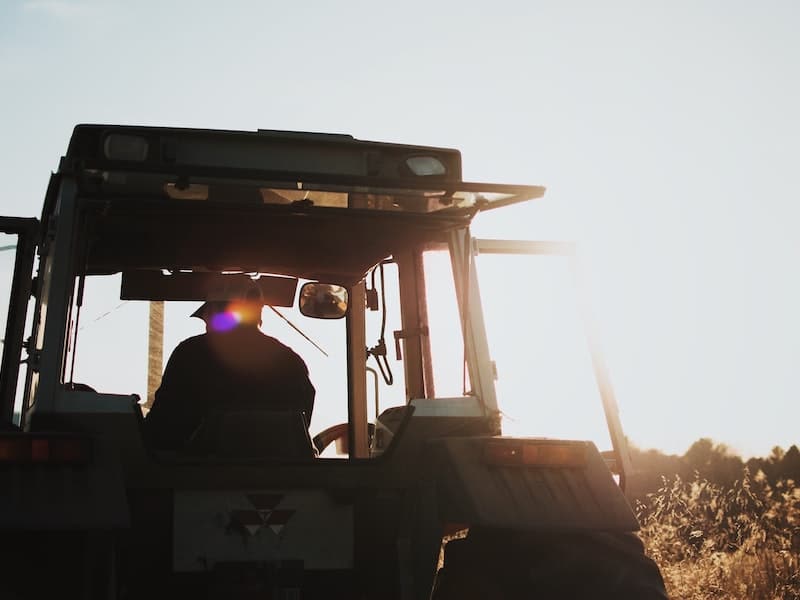
25 Jun Bayer reaches settlement on dicamba, Roundup lawsuits
Bayer | Feedstuffs | Jacqui Fatka | June 24, 2020
“Bayer announced Wednesday a series of agreements that will substantially resolve major outstanding litigation involving Monsanto, including U.S. Roundup product liability litigation, dicamba drift litigation and polychlorinated biphenyls (PCBs) water litigation.
Werner Baumann, chief executive officer of Bayer, said the agreement brings an end to the uncertainty for customers, investors, stakeholders and employees but contains no admission of liability or wrongdoing. Baumann expressed a general feeling of relief but also acknowledged that the settlement will require a lot of money for a product that was determined to be safe.
“The most important thing now that we can do is set the course for the future and leave the uncertainty and litigation behind us,” Baumann said. During the COVID-19 lockdown, the only things open were pharmacies, hospitals and food stores, which represents the most basic consumer needs. “These are the businesses we’re in and now where we’ll put all of our energy,” he said.
William Dodero, global head litigation of Bayer, said the agreement keeps open the legal argument for pending cases and the scientific argument establishing that the product is not carcinogenic through the establishment of a scientific panel to determine any causal link between Roundup use and non-Hodgkin’s lymphoma (NHL). It also allows closure, in due course, of all pending cases if the panel determines that there is no causal link.
The company said it will make a total payment of $10.1-10.9 billion to resolve current and address potential future Roundup litigation and it also resolved dicamba drift litigation for a payment of up to $400 million and most PCB water litigation exposure for a payment of approximately $820 million. The funding is sourced from free cash flow and the animal health divestment, the company said. Baumann added that the animal health divestures should close in the next week.
Payments are expected to start in 2020. Bayer currently assumes that the potential cash outflow will not exceed $5 billion in 2020 and $5 billion in 2021; the remaining balance would be paid in 2022 or thereafter.
The main feature is the U.S. Roundup resolution that will bring closure to approximately 75% of the current Roundup litigation involving approximately 125,000 filed and unfiled claims overall. The resolved claims include all plaintiff law firms leading the Roundup federal multi-district litigation or the California bellwether cases and those representing approximately 95% of the cases currently set for trial, and they establish key values and parameters to guide the resolution of the remainder of the claims as negotiations advance.
The resolution also puts in place a mechanism to resolve potential future claims efficiently. The company will make a payment of $8.8-9.6 billion to resolve the current Roundup litigation, including an allowance expected to cover unresolved claims, and $1.25 billion to support a separate class agreement to address potential future litigation.
The Roundup class agreement will be subject to approval by Judge Vince Chhabria of the U.S. District Court for the Northern District of California. The resolutions were approved unanimously by Bayer’s board of management and supervisory board with input from its Special Litigation Committee.
[…]
Dicamba litigation
Bayer will also pay up to a total of $400 million to resolve the dicamba multi-district litigation pending in the U.S. District Court for the Eastern District of Missouri and claims for the 2015-20 crop years. Claimants will be required to provide proof of damage to crop yields and evidence that it was due to dicamba in order to collect. The company expects a contribution from its co-defendant, BASF, towards this settlement.
The only dicamba drift case to go to trial – Bader Farms – is not included in this resolution. “The company believes the verdict in Bader Farms is inconsistent with the evidence and the law and will continue to pursue post-trial motions and an appeal, if necessary,” Bayer said.
Peiffer Wolf represents dozens of farmers with dicamba damage, including many that have come forward since the landmark $265 million Bader Farms verdict in February.
Producers who make a dicamba claim will be required to produce evidence of dicamba symptomology and yield loss. “It is expected that the claims process will begin later this year after the 2020 harvest has been completed,” the law firm said.
Peiffer Wolf attorney Paul Lesko, a member of the plaintiff executive committee that worked out the settlement, said: “We cannot stress enough the importance for farmers who have suffered dicamba damage to step forward and make their claim. This money will not flow out automatically. Farmers with dicamba crop damage will need to go through a process to get these funds, and we encourage them to get started now.”
Bayer said it is settling the pending dicamba drift cases to “be able to focus on the needs of its customers.”
Earlier this month, the U.S. Ninth Circuit Court of Appeals vacated registrations for three dicamba herbicides — including Monsanto/Bayer’s Xtendimax — after claiming that the U.S. Environmental Protection Agency’s mishandling of the registration process resulted in more than 1 million acres of crop damage in 18 states.”
FREE Consultation | 314-833-4827
Dicamba Damage Lawyers at Peiffer Wolf Carr Kane & Conway are fighting on behalf of farmers and landowners to seek maximum compensation for the damages suffered due to Dicamba Damage. If you suspect that your crops or plants have been damaged by dicamba, contact Peiffer Wolf Carr Kane & Conway by filling out a Contact Form or by calling 314-833-4827 for a FREE Consultation.



